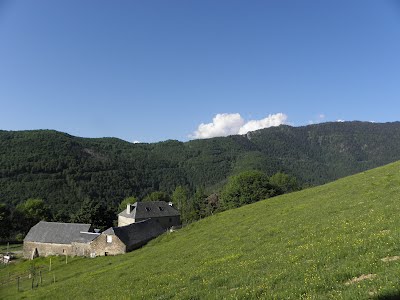Sarrancolin
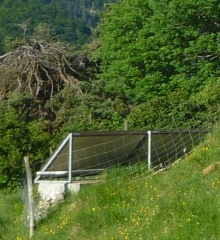
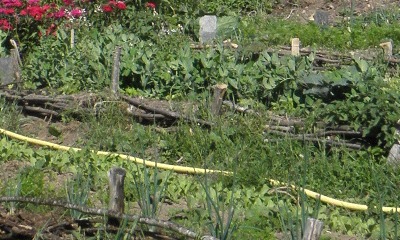
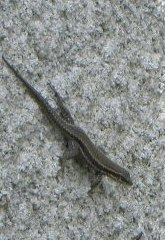
It was our first time WWOOFing. WWOOF stands for World Wide Opportunities on Organic Farmings.
I participated with my then-boyfriend. We ended up staying with French families owning rather big veggie garden with hippie taste.
We took TGV from Montparnasse station, Paris, to Toulouse, and changed to TER to go to Lanemmezan station. The host father came there to pick us up by car and took us to their house, which was located in the mountain of the village called Sarrancolin.
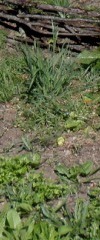
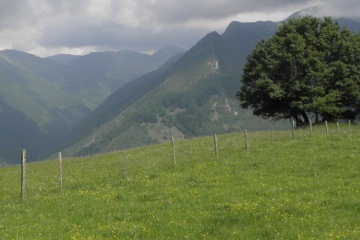
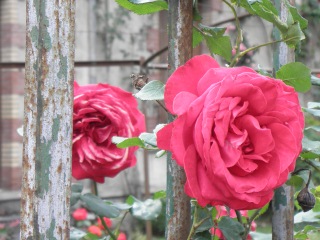
The father of this family was a distributor of the marbles from the Pyrénées, and the mother was in charge of the veggie garden. The kids were 7 and 5, and both were raised by home schooling "Because school kids these days study too much and don't have time to play," according to the mother.
The house was located on the top of the hill, so there were no kids of same age in neighbours, but these kids were very relaxed, innocent, honest and confident.
The kids went to music or dance lessons or for sports down the hill insted of school, and made friends there. The mother's firends who are also into self-sufficient life brought their kids, who were also raised by home schooling.
This family produced almost no garbage, because food waste went to the compost, and burnable garbage to the mantlepiece to be burnt. The dumping area was far away that they had to drive a car to go down the hill. That must have helped them not to produce much garbage, as well.
The field was bigger than enough to feed the whole family. There was a greenhouse on the side of the veggie garden. The mother raised a lot, but still there were times of harvest for each vegetables, so she had to go to marché and supermarkets to fill in what was missing.
There was a huge stock of preserved food in the garage because it snows a lot during winter season. When it snows, it is impossible to drive so the father has to ski to go to work while the rest of the family stay at home for weeks. That is why preserved foods are absolutely necessary.
There were 2 donkeys and 40 sheeps in the big backyard. Sheeps were there to take care of weeds, so they were on their own except for the shaving time. The donkeys were meant to be helping the farming, but they hadn't been trained yet, and so they were just having good times...
Water was boiled during day by solar heat, and went through pipes to distribute hot water. When this family installed this amazing boiler system, ther was financila aid from the municipality, they said. The temperature can be adjusted, and it can become very hot. Unless very bad weather continues for many days, the water stays hot. It is possible to set the panels on the roof, but they put it in the back yard because the house was 200 years old and the roof was not strong enough.
It started to pay back after 9 years, they said.
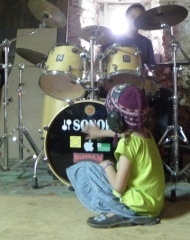
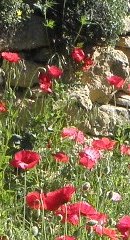

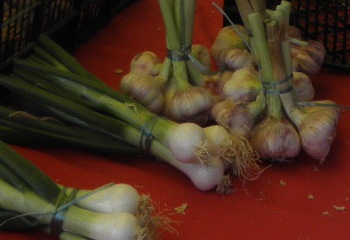
Bagnères-de-Bigorre
The first host family could receive us only for a week because they had a plan to travel abroad. So they introduced another family who could let us stay. The second host family lived in rhe neighbouring village called Bagnères-de-Bigorre, and they had 4 kids from 2 to 8 years old.
The father of this family was a carpenter. This family did not have a fridge (but owned washer and vacuum), were vegetarian (but eat eggs), kids were born at home, and had no caffeins at home.
They were building a mountain hut in another village, aiming for the life in which they use solar energy, snowmelt water, and dry toilet. The sewage water goes onto the soil, straight out of the pipes. It is not a problem in this case because they only use biodegradable detergent, shampo, or soaps.
The family lived in a modern house which had standard water, electricity, and gas system, but they said they wanted to move to the mountain hut as soon as it is done.
The problem was that the municipality did not accept their policy of building, not to use a single nail, which was out of the specification. So it could be demolished even if they built such an environmentally-friendly house.
As a Japanese, building a house without single nail sounds so traditional. Traditional Japanese carpenters, called Miyadaiku have been building shrines and temples like that.
Lesponne
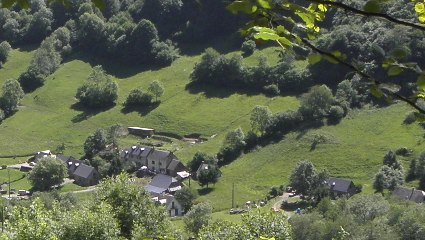
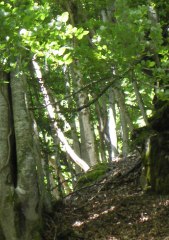
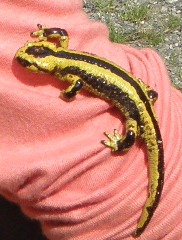
The host family's mountain hut was on the mountainside of the village called Lesponne. The father and his friends opened the forest by their hands.
This father loved nature, especially trees, and had own philosophy to deal with nature. He said he prefers to use ax rather than chain-saw, because birds and other animals don't treat him like an invador. They don't come close to him if he maked the motor sound.
There were herbs, fruit trees, and veggies, around the hut, planted by the host mother, and I worked mainly with those plants. I enjoyed a lot taking care of plants.
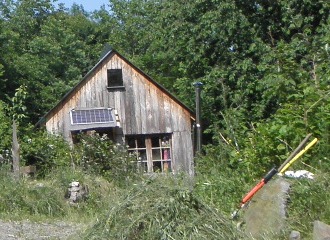
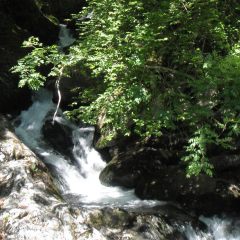
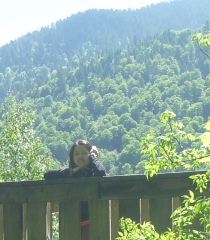
Both families handmade as many things as possible. They also participated the group buying system to purchase organic flours and beans with their firends.
They kept distance from their neighbours who had more conventional ways of living. Instead, the host families took importance on the connection among people of common interest through internet.
Self-sufficient life cannot be achieved alone, and people need to help each other.
